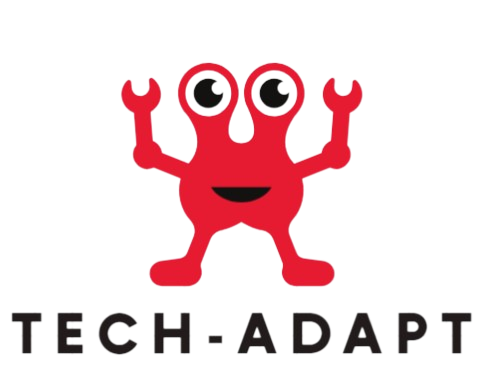Blockchain in Governance: Transforming Public Services
In today’s digital age, where data is often referred to as the new oil, the importance of secure, transparent, and immutable record-keeping cannot be overstated. Enter blockchain technology – a revolutionary concept that has the potential to reshape industries and redefine the way we transact and interact online.
Understanding Blockchain
At its core, blockchain is a decentralized ledger technology that enables the recording of transactions across a distributed network of computers. Unlike traditional centralized systems where a single entity controls the data, blockchain distributes data across a network of nodes, making it transparent, tamper-proof, and resistant to censorship.
How Does Blockchain Work?
Blockchain operates on a system of blocks, each containing a list of transactions. These blocks are linked together in a chronological order, forming a chain – hence the name blockchain.
When a transaction occurs, it is broadcasted to the network of nodes. These nodes then validate the transaction using consensus mechanisms such as Proof of Work (PoW) or Proof of Stake (PoS). Once validated, the transaction is added to a block and appended to the blockchain.
Crucially, each block contains a cryptographic hash of the previous block, creating a chain that is resistant to tampering. Any attempt to alter the data in a block would require altering all subsequent blocks in the chain, making it virtually impossible to manipulate the data without detection.
Key Features of Blockchain
- Decentralization: Blockchain operates on a peer-to-peer network, eliminating the need for intermediaries and centralized authorities. This decentralization increases transparency, reduces the risk of fraud, and enhances security.
- Transparency: Every transaction recorded on the blockchain is visible to all participants in the network. This transparency fosters trust among users and enables greater accountability.
- Immutability: Once a transaction is recorded on the blockchain, it cannot be altered or deleted. This immutability ensures the integrity of the data and prevents fraud or tampering.
- Security: Blockchain uses cryptographic techniques to secure transactions and protect sensitive information. The decentralized nature of the network also makes it resilient to cyber attacks and data breaches.
Applications of Blockchain
Blockchain technology has a wide range of applications across various industries, including:
- Finance: Blockchain is perhaps most famous for its role in cryptocurrencies like Bitcoin and Ethereum. However, its impact extends beyond digital currencies to areas such as cross-border payments, smart contracts, and decentralized finance (DeFi).
- Supply Chain Management: Blockchain can improve transparency and traceability in supply chains by recording every stage of the production and distribution process. This can help verify the authenticity of products, prevent counterfeiting, and streamline logistics.
- Healthcare: Blockchain can securely store and share medical records, ensuring patient privacy and data integrity. It can also facilitate the tracking of pharmaceuticals and medical devices, reducing the risk of counterfeit drugs and improving patient safety.
- Identity Management: Blockchain-based identity systems can provide individuals with greater control over their personal data and streamline processes such as identity verification and authentication.
- Real Estate: Blockchain can streamline property transactions by digitizing titles and automating the transfer of ownership. This can reduce fraud, eliminate the need for intermediaries, and make real estate markets more accessible.
Challenges and Future Outlook
While blockchain holds immense promise, it is not without its challenges. Scalability, interoperability, regulatory uncertainty, and energy consumption are among the key issues that need to be addressed for blockchain to realize its full potential.
However, despite these challenges, the future looks bright for blockchain technology. As organizations and industries increasingly recognize its transformative potential, we can expect to see continued innovation and adoption in the years to come. From financial services to healthcare, supply chain management to identity verification, blockchain is poised to revolutionize the way we do business and interact online.
In conclusion, blockchain represents a paradigm shift in the way we think about data, trust, and decentralized systems. By providing a secure, transparent, and immutable record-keeping mechanism, blockchain has the power to reshape industries, empower individuals, and drive innovation in the digital economy.
Smart Contracts: Automating Transactions with Blockchain
Smart contracts are self-executing contracts with the terms of the agreement directly written into code. They run on the blockchain and automatically execute when predefined conditions are met. This eliminates the need for intermediaries and facilitates trustless transactions.
Smart contracts have numerous applications across various industries:
- Finance: Smart contracts can automate complex financial agreements such as loans, derivatives, and insurance policies. They can automatically execute payments, verify compliance with regulations, and reduce the risk of fraud.
- Supply Chain Management: Smart contracts can streamline supply chain processes by automating tasks such as payment settlements, inventory management, and order fulfillment. They can help reduce costs, increase efficiency, and improve transparency.
- Real Estate: Smart contracts can revolutionize the real estate industry by automating property transactions. They can facilitate the transfer of property titles, escrow payments, and rental agreements, making real estate transactions faster, cheaper, and more secure.
- Legal: Smart contracts can automate legal agreements such as wills, contracts, and intellectual property rights. They can ensure that parties comply with the terms of the agreement and enforceable without the need for intermediaries or legal disputes.
- Healthcare: Smart contracts can streamline healthcare processes such as medical billing, insurance claims processing, and patient consent forms. They can automate payments, verify the authenticity of medical records, and ensure compliance with privacy regulations.
Smart contracts have the potential to revolutionize the way we do business by automating transactions, reducing costs, and increasing efficiency. However, challenges such as scalability, security, and legal compliance need to be addressed to realize their full potential. Nevertheless, smart contracts represent a significant step forward in the evolution of blockchain technology and its applications across various industries.

